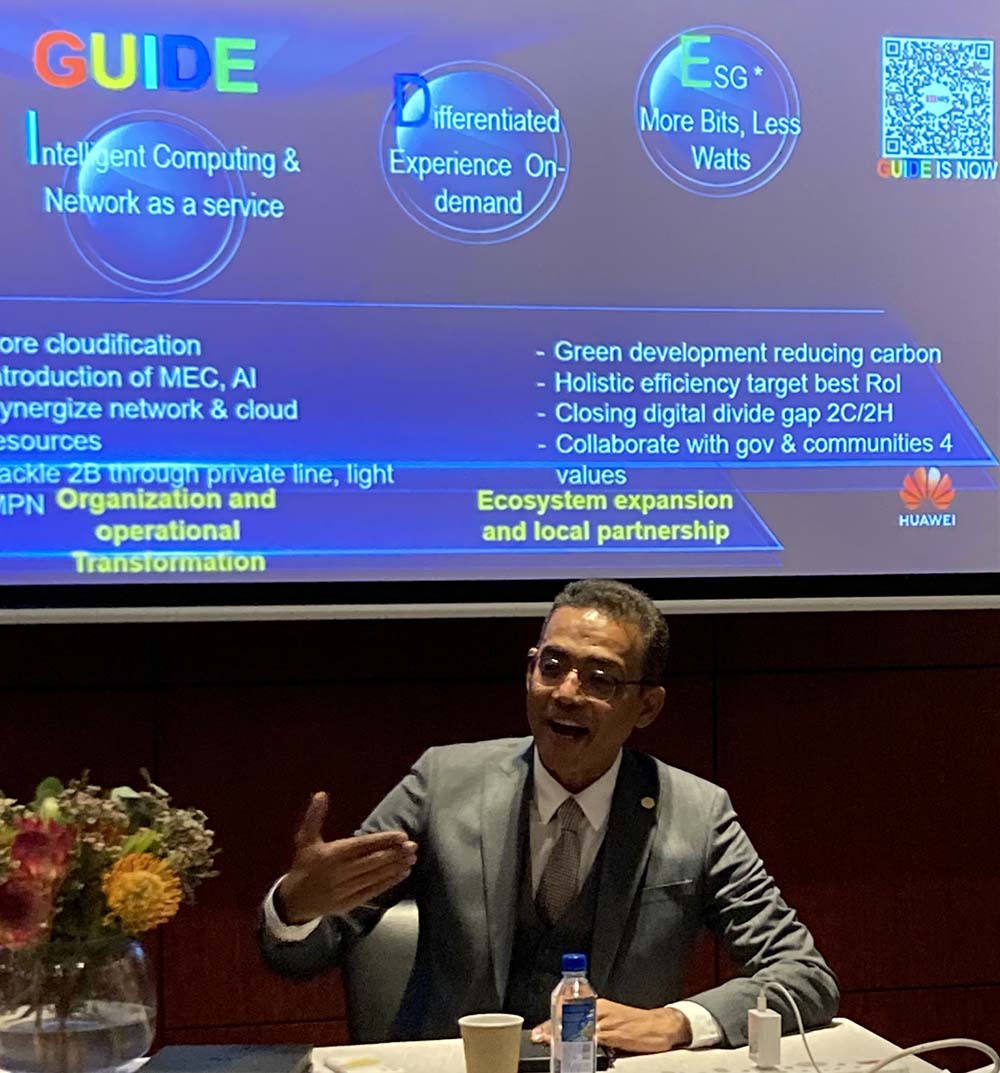Dr Mohamed Madkour, VP, Global Carrier Network Solutions & Marketing, Huawei HQ led a roundtable in which he underlined how important 4G and LTE will continue to be for Africa’s digital and economic development, even as the continent embraces 5G at an ever-greater scale.

Dr Mohamed Madkour, VP, Global Carrier Network Solutions & Marketing, Huawei HQ.
The roundtable, which took place on the periphery of AfricaCom (the continent’s largest technology conference), saw Madkour outline the importance of LTE as a foundation for business development as operators roll out 5G, the benefits of using 4G and 5G together, the impact of 5G rollout on network evolution, and the driving forces for 5G in Africa.
With the world adopting 5G at a rapid pace, it would be tempting for African operators to go all in on it. That’s especially true given the advantages it offers in terms of speed, cost, and power efficiency. But as Madkour pointed out, 4G technologies such as LTE have had a profound impact on the world and will continue to do so.
“4G has done great stuff for people around the world,” he said. “There are a lot of companies that could only be created because of 4G, with trillions of dollars added to the global economy.”
The same is true in Africa, where the rollout of 5G is still in its infancy. “5G has only been around for three years and we’ve barely scratched the surface,” Madkour said.
One of the important lessons that the continent can learn from the rest of the world, he believes, is that having a strong 4G network makes rolling out 5G a lot simpler.
“The secret of good 5G is inspired by carriers having strong 4G,” he said. “The optimum user experience is strong 4G and 5G.”
“4G in Africa has been great but penetration is still around 50%,” he added. “5G is tiny. 4G still needs to grow, and then we can put 5G on top in places that make sense. Any investment right now in strengthening 4G will actually reduce the investment needed in 5G.”
This is already evident in countries around the globe, with some carriers using their LTE connections for voice calls as it offers them the best network efficiency.
That focus on continued 4G growth, Madkour added, is especially important when you remember that half of all households on the continent are either unconnected or underconnected. With Fibre rollout a challenge in many countries, solutions such as fixed wireless access (FWA) present an important opportunity for connecting those households.
The COVID-19 pandemic underlined how critical having that kind of fast, affordable connectivity in the home is. A few years ago, home connectivity may have been important for entertainment, after-hours work, or research for school assignments. Today, it’s the locus of everything from work to small business and education. By promoting connectivity through FWA and associated technologies, carriers prime their customers to adopt 5G when it becomes available. With millions of households across Sub-Saharan Africa able to afford broadband connectivity, but which remain unconnected, there is a massive market opportunity.
“You can continue with the deployment of 4G so that there doesn’t need to be a dramatic change of equipment when it comes to switching over to 5G,” Madkour said. 5G is just a continuation and of your existing capability.”
And African carriers will have to roll out 5G to ensure that people and businesses on the continent are able to be globally competitive. In order to do that, they’ll have to ensure that they focus on the 5G services that make the most sense for their own capabilities as well as their customers needs and locations.
“No carrier can implement 5G with everything,” Madkour said. “For the launch to be successful, there has to be a plan to make money.”

Home connectivity is one example of a business case, but so are private 5G lines to enterprises, and providing connections to smart, connected vehicles. There are many others too. It’s also important to remember that 5G networks not only make money from the services, but also from the cost effectiveness. For example, it costs just 4% as much to send 1bit of data using a 5G connection as it does with a 4G equivalent. No matter which of these business cases (whether individually or in combination) an operator chooses to pursue, however, it’s still important that it understands the market it’s operating in.
As an example, Madkour points to the cost of devices in the consumer sector.
“We all know that the penetration of 5G devices in Africa is low,” he said. “So for the continent, affordable devices are key.”
Madkour also believes that if Africa is to see maximum benefit from 5G, it can’t just be down to the networks and operators.
“The industry needs a lot of investment from everybody,” he said.
That includes governments, which have an important role to play in ensuring that spectrum licenses are issued.
Looking forward, Madkour believes that we will continue to see advancements, leading up to the eventual launch of 6G. But for now, he says, “everybody’s taking it step by step.”
